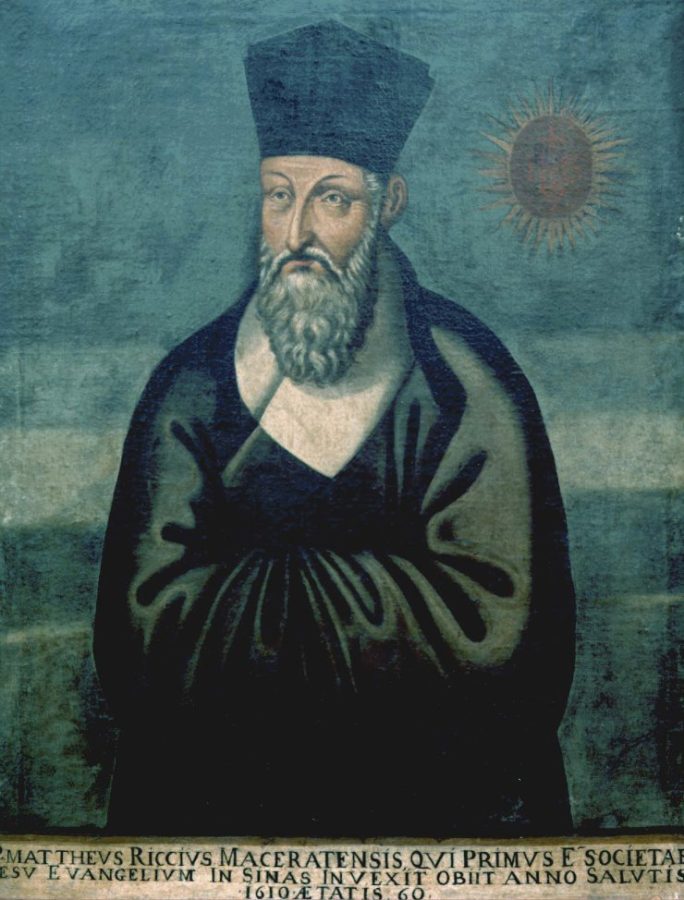Venerable Missionary Matteo Ricci Still Making Waves
Benjamin Howe will have to purchase new stationary soon. The Matteo Ricci Institute, where Howe serves as the director and as a professor of philosophy, may be able to add “Saint” to its title in the next few years.
On Dec. 17, Pope Francis approved the Dicastery for the Causes of Saints (the Vatican office which decides which deceased Catholics may qualify for official canonization in the Church) to move forward in the canonization process of Matteo Ricci, S.J., a late 16th century Italian cleric known for his missionary work in China.
“There are a couple things about Matteo Ricci that we hold onto when we think about him as the namesake for our academic unit. We are the only degree granting institute on campus that is named for a Jesuit, and I take some pride that Seattle University picked this particular Jesuit,” Howe said.
Professor of Theology and Religious Studies Stephen T. Chan situated Ricci’s impact within the larger picture of Chinese Christianity.
“He came during the Ming Dynasty, and during his life he interacted with the gentry, the intellectuals and the officers. This has been the missionary policy of the Jesuits both in China and in Japan. In Japan the Jesuits interacted with the royal court, whereas in India [St. Francis] Xavier tried to serve the poor, so there has always been a well-known contrast between the missionaries in India compared to China and Japan,” Chan said.
Ricci’s name having a presence on Seattle U’s campus reflects the university itself–an institution which seeks to integrate itself with the most influential leaders in Seattle, while balancing that ambition with a desire to encounter individuals of all social, economic and cultural backgrounds.
Ronnie Hsia, a professor of history at Pennsylvania State University, argues that Ricci is remembered in a more positive light compared to other Catholic missionaries due to his desire to experience Chinese culture rather than fundamentally alter it.
“His perception in Chinese history is as somebody who could transcend the cultural divide and was a genuine friend of the Chinese people and an admirer of their culture,” Hsia said.
Ricci’s spirit of encounter with Chinese culture, and his attempts to integrate Catholic theology into existing Confucian practices, were not without their detractors. In 1715, Pope Clement XI sided with Dominican priests who were dismayed by Ricci’s embrace of Chinese culture, which many European Catholics feared were heretical or at the very least incompatible with Church teaching.
“The Jesuits were defining these practices as civil rites which were not religious in content,” Hsia said.
Ultimately, the Jesuits were vindicated several centuries later when the Vatican re-established diplomatic relations with China in 1943. Many Jesuit high schools and colleges have an office, academic program or college named after Ricci. His widespread influence on campuses founded by the Society of Jesus is not just reflective of Ricci’s personal achievements, but of the values of Jesuits today.
“Because of his transcultural and transnational achievements, Ricci has really become a symbolic figure for emulation,” Hsia said.
Ricci’s path to sainthood will also have geopolitical implications. Cardinal Emeritus Joseph Zen of Hong Kong is currently embroiled in legal controversy due to his advocacy during pro-democracy protests in 2019. In addition, the Vatican signed an agreement with the Chinese government in October 2022 which Church officials hope will decrease political pressure on Chinese Catholics. While Ricci’s cause for sainthood has been discussed since the mid-1980s, the fact that he is advancing toward canonization now could serve as an opportunity for further communication between the world’s largest institutional religion and its most populous country.
Regardless of the political and cultural headwinds which may impact his cause for canonization, it’s clear that Ricci’s method of evangelization was ahead of its time. Hsia argues that Ricci ought to be remembered as a Jesuit who was concerned with ingratiating himself within the elite circles of Chinese life, but also as a man who rose above the racial prejudices of his time to become a true friend of the peoples he encountered.
“I think that’s why he is still with us today. He’s an exemplar of how to behave in a multicultural world, within which we will interact with people from different cultures,” Hsia said.
Howe echoed Hsia’s assessment, and cited Ricci as a source of enthusiasm in the Institute’s efforts to create a diverse and engaging academic experience.
“When we think about our own curriculum, de-colonizing it and making it less Eurocentric, we use Matteo Ricci as an inspiration. That isn’t to say that everything he did during his life is consistent with our contemporary values today, but this basic idea of multiculturalism and a willingness to critically examine Eurocentrism is a core inspiration for us,” Howe said.
While he may have lived centuries ago in a different context from our own, it is clear that Ricci’s impact is still echoing throughout the global Church and right here at Seattle U.


